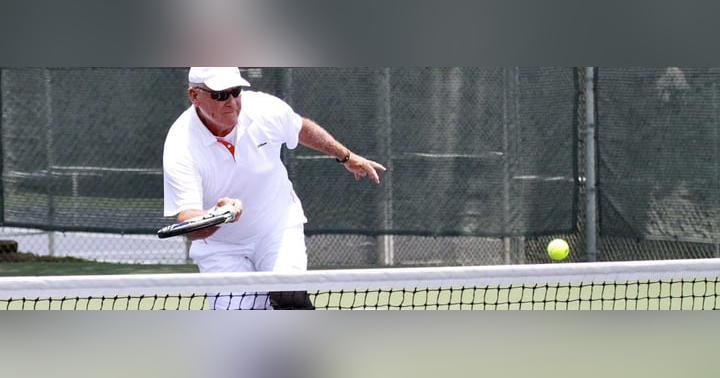8 ways to cope mentally with an injury

No athlete is superhuman, we all suffer our fair share of injuries, the most common being tennis elbow. Despite all the warmups and stretches, that unfortunate niggle can become a lot more serious and see us off the court for some time.
Why me?
An injury may seem unfair, considering like all sports people racquet sports players tend to lead a healthy active lifestyle. Generally, athletes are well accommodated for physical rehabilitation but mental rehabilitation can often be overlooked. Some researchers believe the mental process of an out-of-action individual is related to that of mourning. For the majority of us, sport is part of who we are. It’s therefore unsurprising that injured players experience a loss of identity. This haunting feeling can often lead to further mental issues such as a loss of self-esteem and rising panic that they might be replaced or never set foot on a court again. Understandably injury takes a mental toll, so here are 8 ways to cope psychologically with an injury.
1. Stay positive and accept help
It’s understandable that injured players will feel down, but try and focus on getting back into playing by staying positive. It’s believed that having an optimistic attitude can often help aid physical recovery. It’s easier said than done but try to surround yourself with a support group to help you. This can be difficult for racquet sports players as they are typically an individual sport where athletes don’t need to rely on anyone else, however, an injury may force you to turn to others for help.
2. Refocus your energy
You may be feeling anxious and stressed, this is because of a change to your routine and you no longer have sport as a productive outlet to absorb all your pent up energy. Find new ways to redirect your energy. Take this timeout as an opportunity to focus on something new that you haven’t had time to try before. Perhaps you have a hidden talent as a chef you never really knew about?
3. Stay active
When injured it can be easy to spend the whole time focusing on what you can’t do instead of considering what you are still able to do. Just because you can’t play does not mean you can’t stay fit. Take this as a chance to work on another part of your game. Speak to a physio or your coach to find out what muscles you can still work. For example, if your injury is in your arm, then you could take the time to build up a stronger core - although it may not be the main bodily focus for racquet sports, it’s no less important to your competitive performance.
4. Harness the power of mental imagery
Mental imagery is a powerful tool for rehabilitation. Not only does it alleviate stress and help to sustain confidence in yourself, but it even activates your muscles just like they would in a match. By playing through your game in your head and focusing on specific strategies and techniques you are working on your mental strength and ensuring your brain stays active.
5. Set realistic goals
Be patient and focus on your long term plan as returning before your fully healed could risk additional, and often more series, injuries. Combine the physical and the mental by setting small short term rehabilitation goals. Your body will improve and at the same time, your mind will be able to see the progress your making towards recovery. It’s important to take your time when recovering and don’t push it too hard too soon.
6. Stay in touch
It’s easy to feel isolated by not attending training sessions and interacting with the same people you used to day-in-day-out. Don’t lose touch with the sport you love: attend your doubles partner’s singles matches, arrange to meet up with your fellow club members or just turn up to training anyway. Just because you can’t play, doesn’t mean you can’t socialise with your peers. Who knows you might even find a new role on the court by helping with training or coaching younger players.
7. Watch the sport your love
Linking back to the previous point, just because you can’t compete at the moment doesn’t mean sport shouldn’t still be part of your life. Stay in touch with the sport we all love by keeping up to date with the latest competitions. Watching professional athletes will help to motivate you to get back into the swing of things when you’re ready, and you never know, you might pick up a new technique whilst watching it.
8. Learn from it
As hard as it may be, you may learn something from your injury and your performance may even improve because of it. You could come back tougher, endure hardship better, and find a deeper motivation to play racquet sports that you didn’t have before. Fighting back from an injury is a difficult mental test, however, once you are back on the court you will likely notice an improvement in your mental strength. Remember, your injury doesn’t have to be the end of the road. Just this year, Andy Murray took his first victory after his hip replacement. His win bought him to tears because he made it through the struggle of coping with an injury. He never lost hope and neither should you.











